|
Posted by Romy the Cat on
06-20-2007
|
|
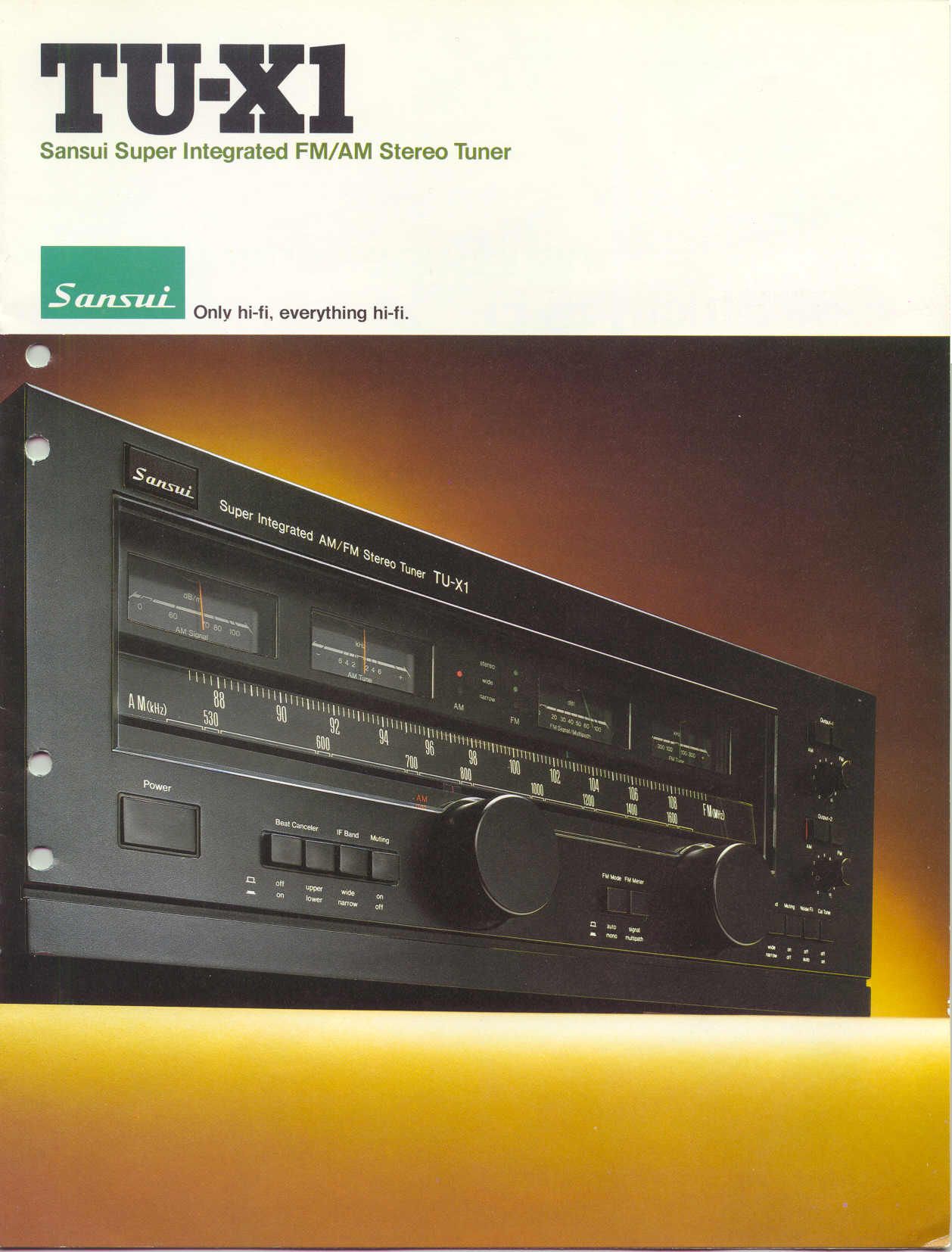
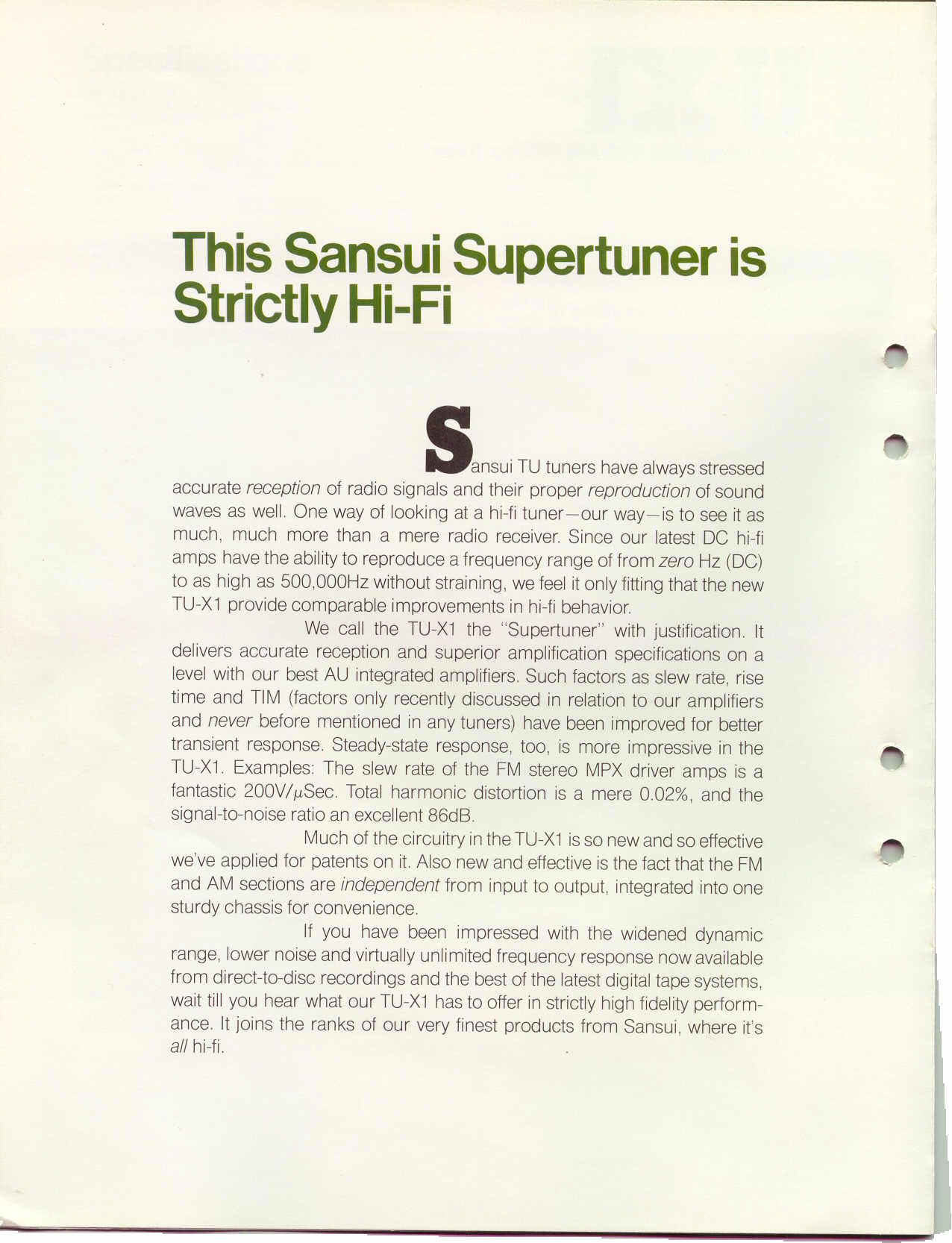
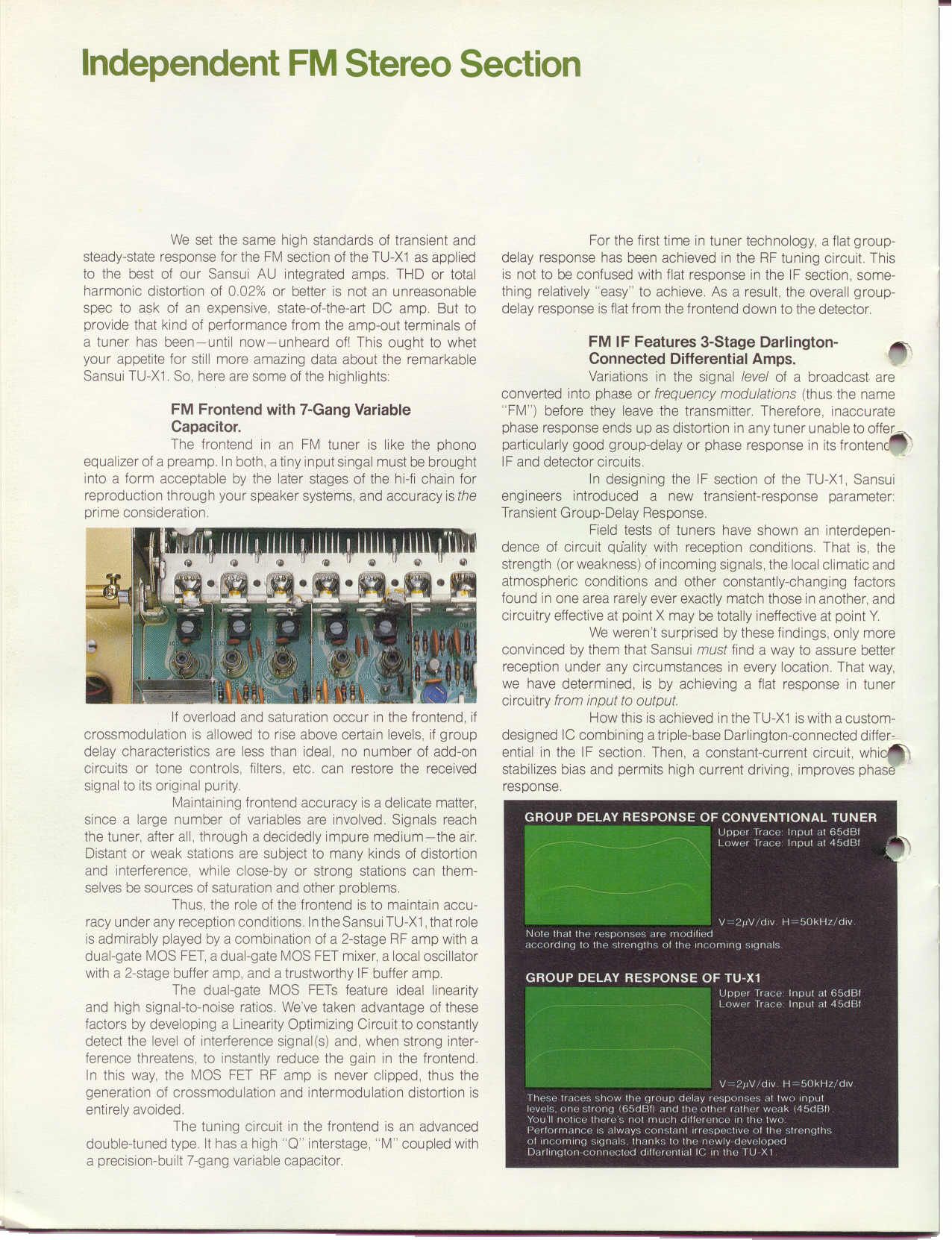
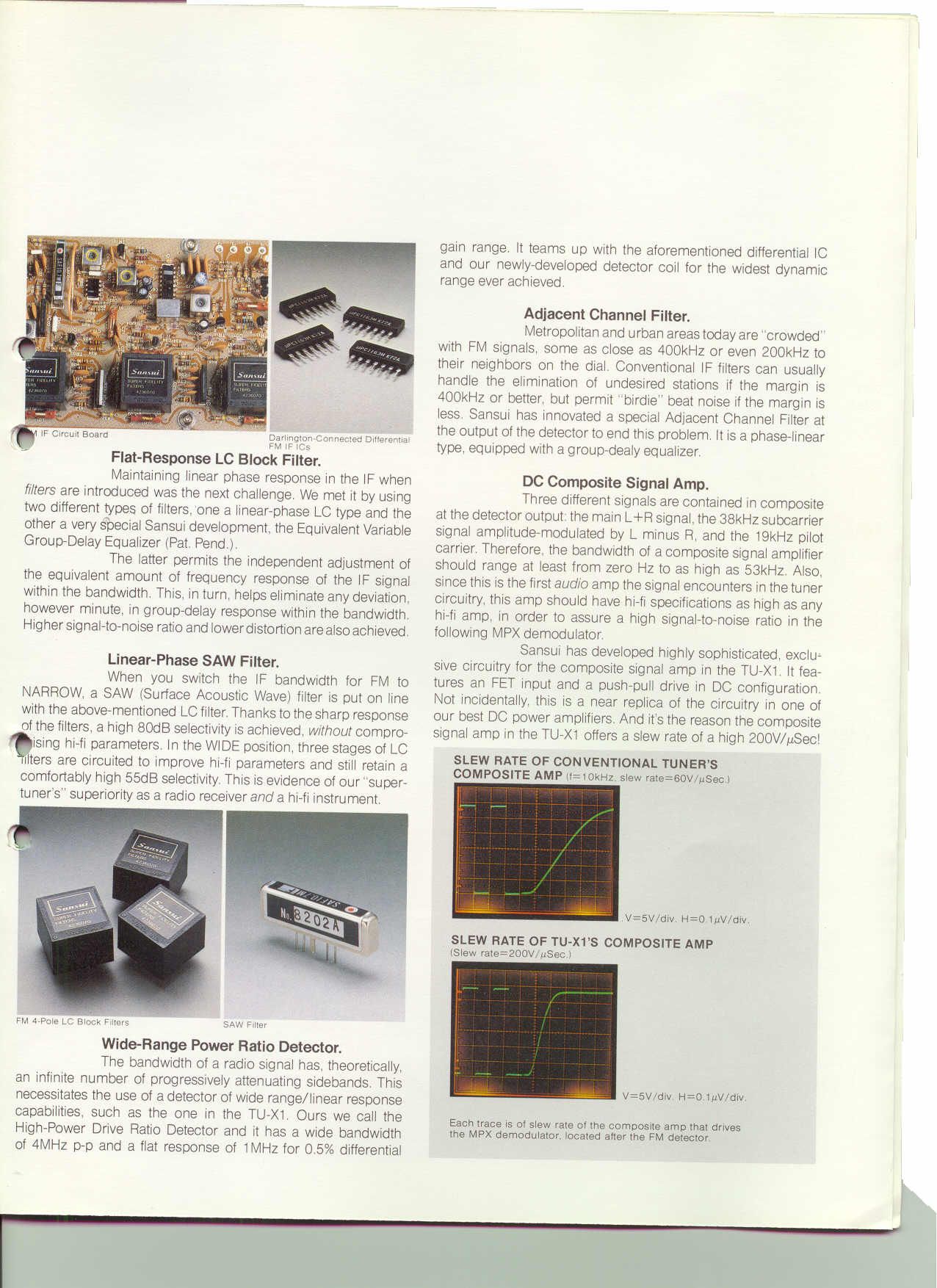
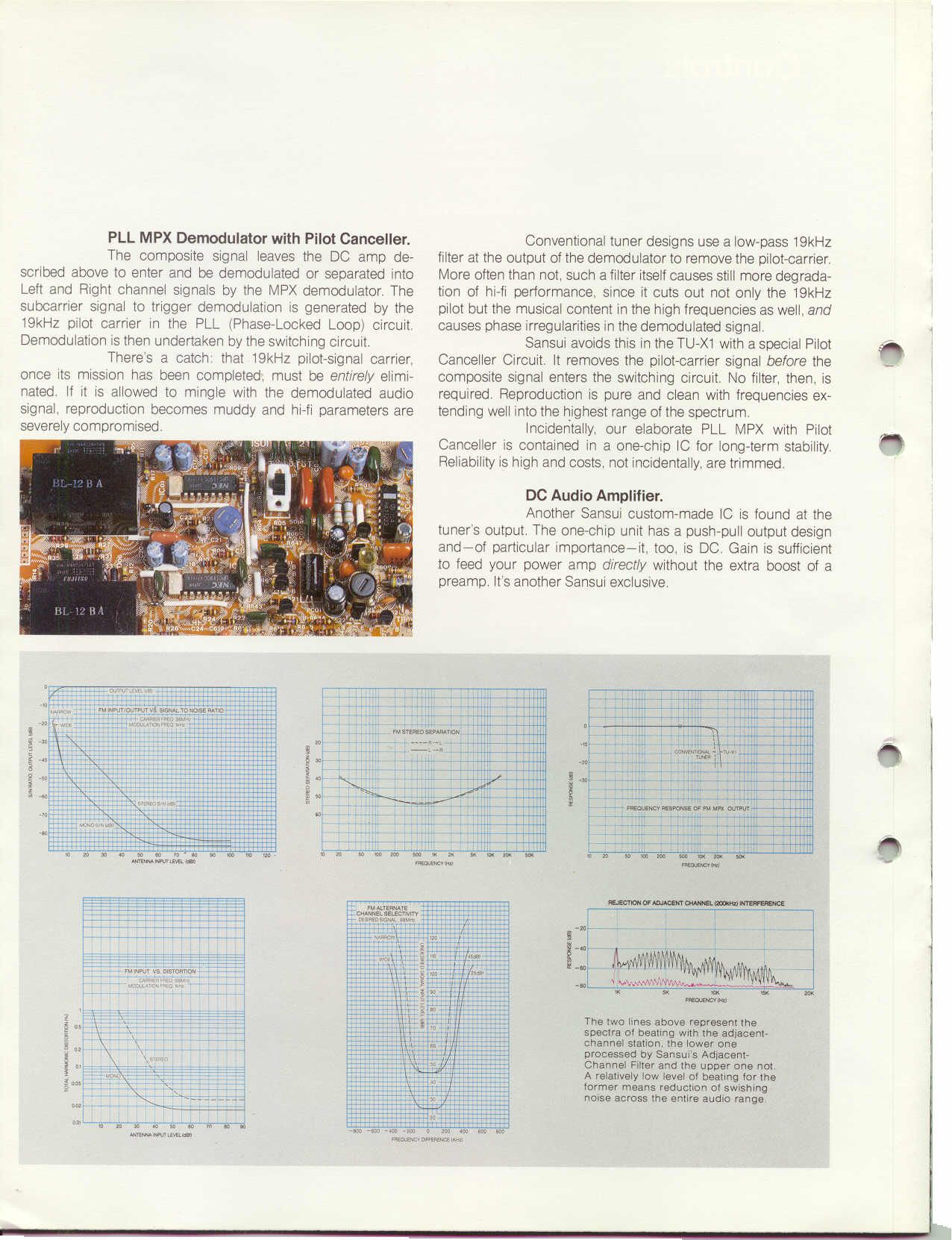
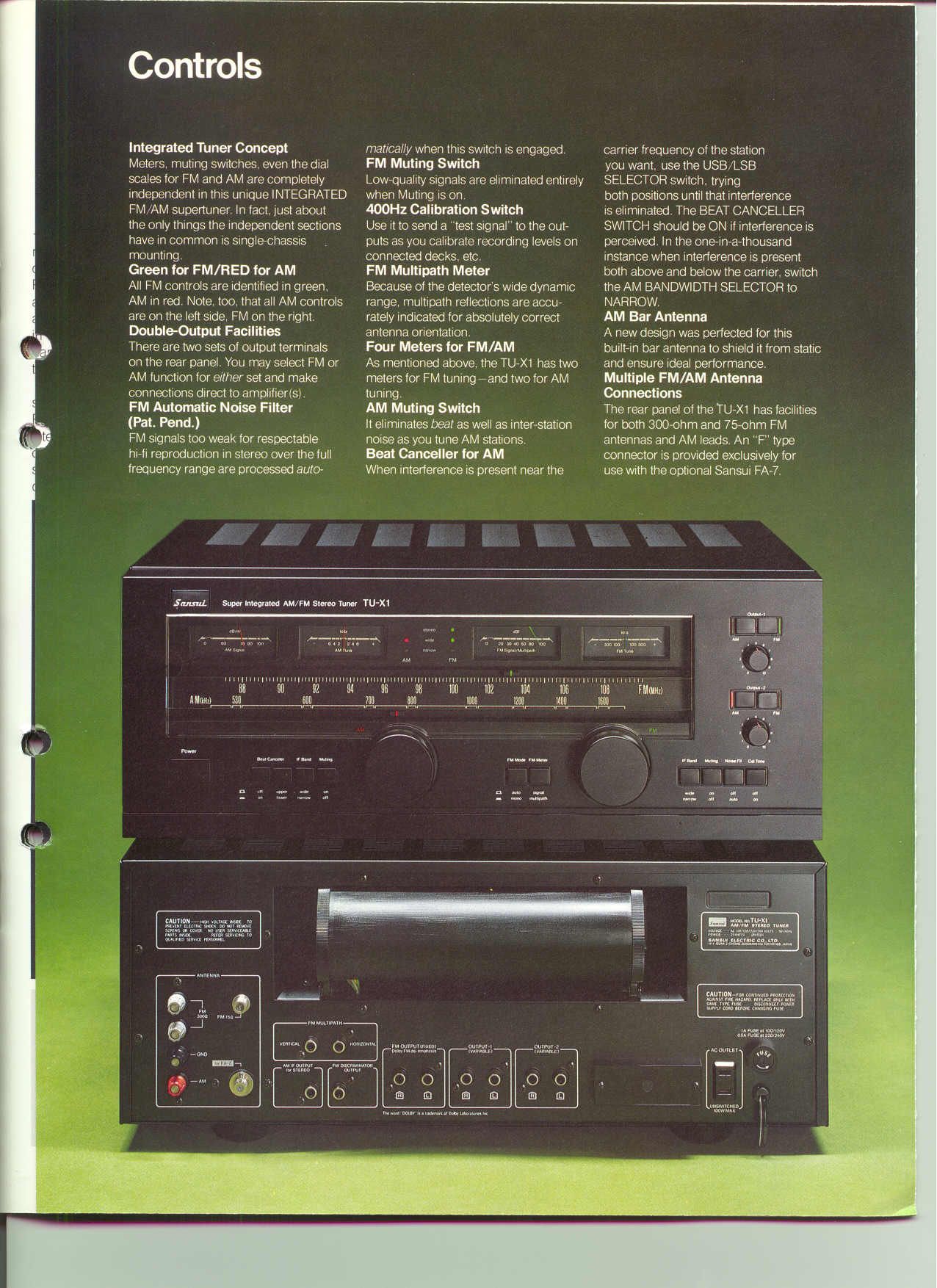
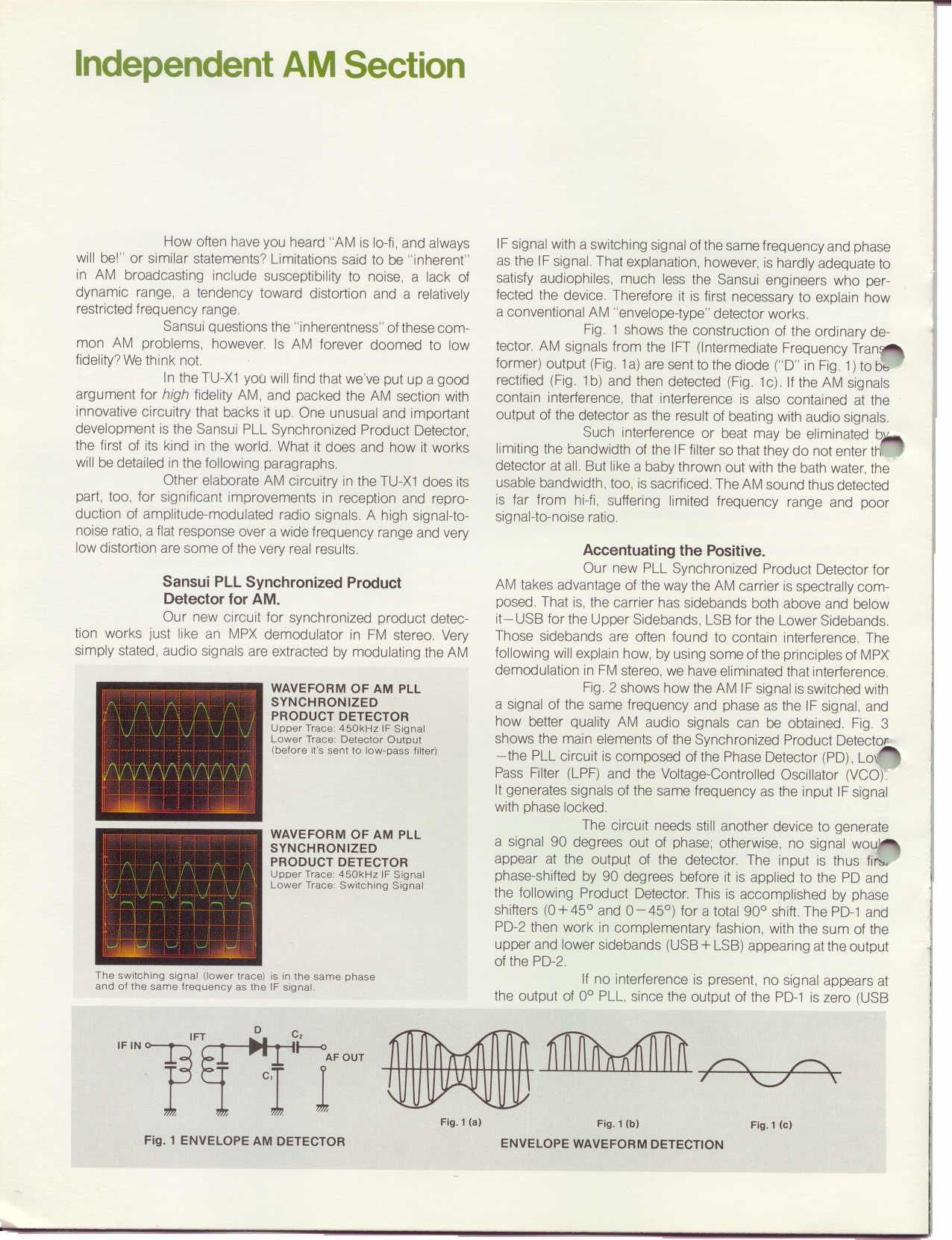
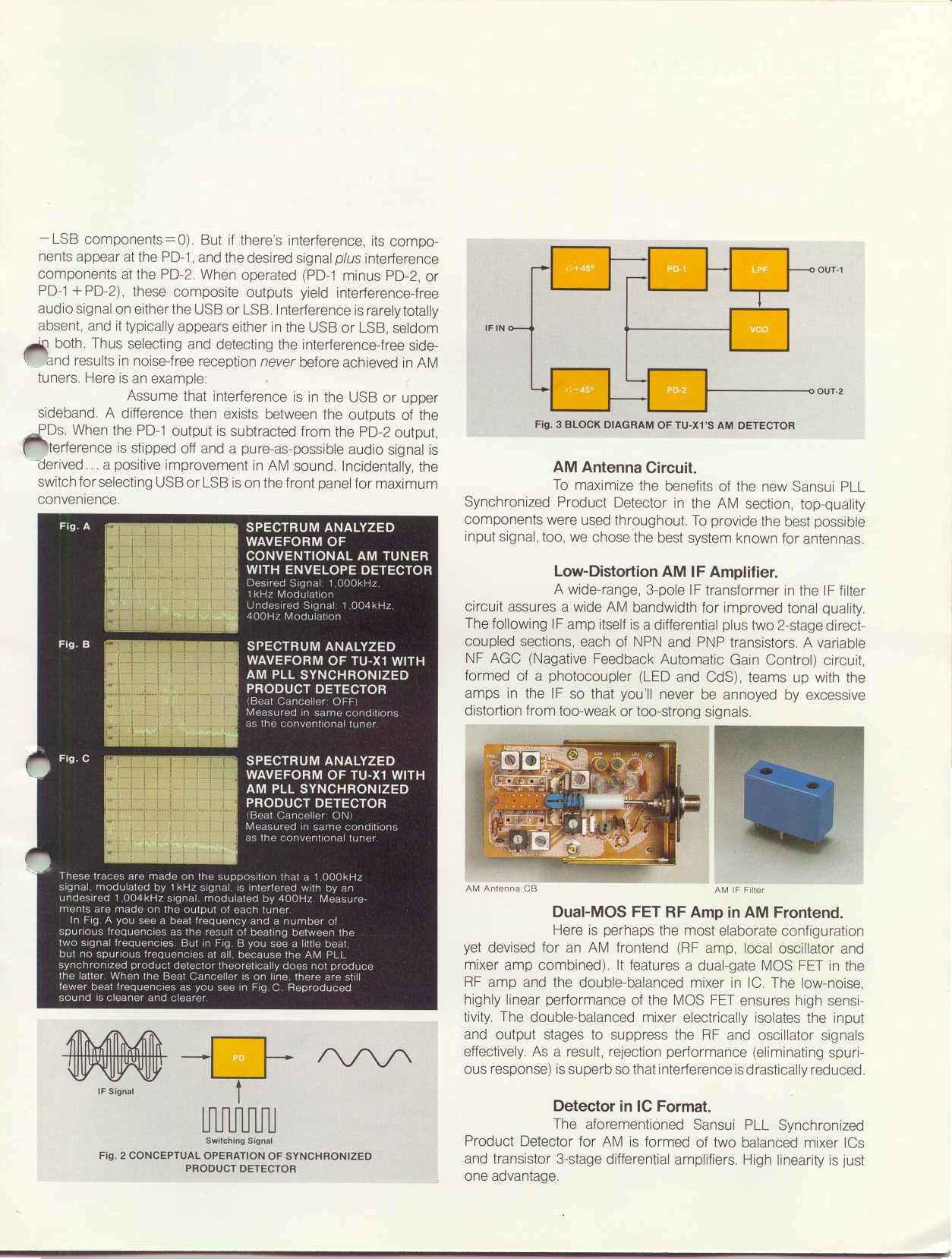
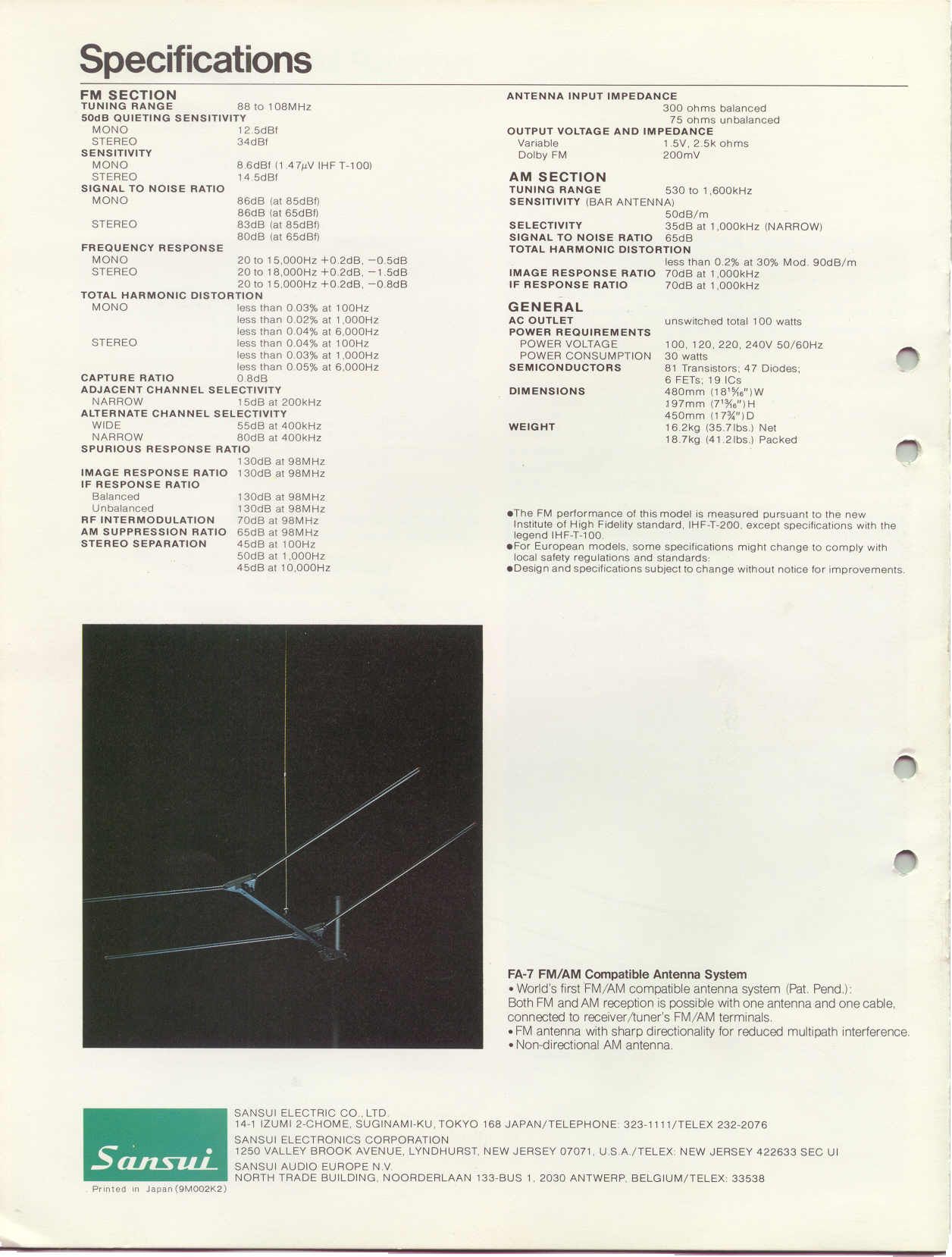
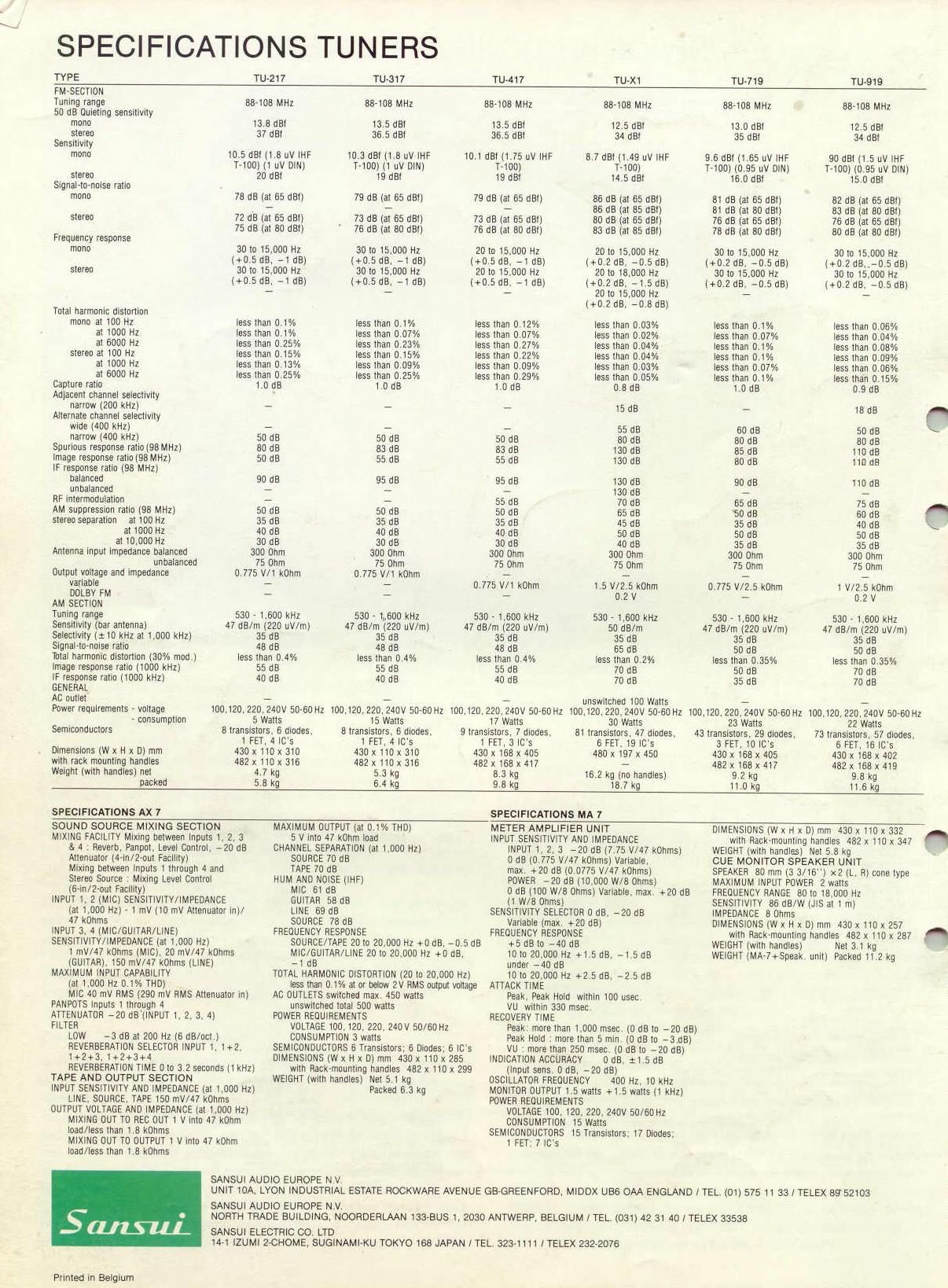
|
|
|
|
|
|
|
Posted by Romy the Cat on
12-19-2007
|
|
I spoke with various people about availability of upgrades for Sansui TU-X1. I have to admit that I have no problems with it sound and my concern is purely intellectual – there are better sounding resistors nowadays and there are better caps then electrolytics in signal path as Sansui used in 70s. So I was wondering what would happen if juts to replace a few parts in the magnificent Sansui TU-X1.
Still, I am afraid that is it will be killed then it will be killed… and I have see a lot of it in hi-fi… and practically among the Morons who do the parts swapping….
So, I decided to make it clean… I have a second Sansui TU-X1 that I keep for 2 year in my storage – just in case (I too much value my FM experiences). So I decided to bring the second TU-X1 to the specification of my current tuner and then to change the part in signal path to the best contemporary parts. If you read the FM circuit then here is what will be changed: http://www.goodsoundclub.com/pdf/TU-X1_FM.pdf
1) R09 120K (or more) - 310K - increase gain
2) R07, R08, loading 22K
3) R17, R18 560R - 562R
4) R11, R12, R03, R04, loading 100K
5) R01, R02 3.9K (.5W) - 4.1K
6) C17+C15+C19 combined bipolar and bypassed 10u/16V
7) C16+C18+C20 combined bipolar and bypassed 10u/16V
8) C27, C28 1000pF
9) C602 10uF/25V
10) C01, C02 0.47uF The alignment, tuning and changes will be done very soon and then the sound of the both: virgin Sansui TU-X1 and the updated will be compared. I am very interested to hear the result. I outcrossesed the changes to my Doctor Sansui – Kenneth Bernacky from “Stereo Surgeons” ( http://www.stereosurgeons.com/AboutUs.html )
The Cat
|
|
|
|
Posted by glaesemann on
01-22-2008
|
|
Any post op news?
|
|
|
|
Posted by Romy the Cat on
02-17-2008
|
 Romy the Cat wrote: Romy the Cat wrote: | | The alignment, tuning and changes will be done very soon and then the sound of the both: virgin Sansui TU-X1 and the updated will be compared. I am very interested to hear the result. |
|
I got my second Experimental Sansui TU-X1 back after a year-long repair and re-calibration. This second tuner sound much more advance then my first one and I retire my first Sansui. Unfortunately the project of comparing of the same tuner with the default critical parts and the replaced is failed. The reason is because my second Sansui TU-X1 is turn out to be better tuner then my first one.
What I got the second Sansui TU-X1 I bought it “as new” in Germany and it was sitting in my storage; I did not even open it up what I got it. When I sent it to Connecticut “Stereo Surgeons”, the owner, Ken Bernacky informed me that the tuner is cooked by lighting and absolutely not operational. He rebut the front end of the tuner and then did all necessary further repair and aliments. As the result he suggested that this second tuner should be better (in term of operation, he does not care about the replaced parts) then my first one. Well he tune out to be correct – my “new” Sansui TU-X1 has much better performance. However, this improved performance is not related to the changed coupling caps or better feedback resistors. The new tuner has less noise; better selectively – the characteristic that has no relation to the parts change in output stage.
The first tuner was released by Ken to me with:
Sensitively: 0.8uv
Distortions Wide Stereo: 0.022%
Distortions Wide Mono: 0.015%
Separation: 56dB
This second tuner has the following numbers:
Sensitively: 0.8uv
Distortions Wide Stereo: 0.029%
Distortions Wide Mono: 0.016%
Separation: 58dB
So, the numbers are closed but for whatever reason I have a stronger signal with common stations. As you understand the change of coupling capacitor in output stage from 30 year old polarized electrolytes to the contemporary non- polarized Nichicon Muse has no impact to sensitively of tune or to its noise. So, I got better tuner but lost the experiment. The caT
|
|
|
|
Posted by Romy the Cat on
02-18-2008
|
|
It is come to me that something is not right with sound that I get from the New Experimental Sansui TU-X1. The “new” TU-X1 better tunes to stations and have better noise butt it has slightly less interesting tone then my old Sansui. You know that string tone that smells with the aroma of autumn leaves… the “new” Sansui does not have it. It doe use the best parts for replacement of the critical element of the output stages…. but it has no tone that I would like it to have. Perhaps I need more time to burn the pasts in but at point I am surprised and disappointed in a way. The parts that I put in the game are much better then what use to be… The caT
|
|
|
|
Posted by Antonio J. on
02-19-2008
|
Those are very bad and concerning news. In my very flawed and very low resolving system I can feel the tone you're speaking of, which no other of my sources has. Does it keep the "space thing" the original has? I wish it gets back when those new parts are burn-in, hopefully it's just a too new parts syndrom.
Rgrds.
|
|
|
|
Posted by Romy the Cat on
02-19-2008
|
From another perspective it has film capacitors and the non-polarized Nichicon Muse caps. They take up-to to 30 days to burn-in. So, it might be just too fresh. I would not say that it kills everything – it is just a very-very slightly brighter, enough to mask out the “other things”. It is, to a degree, like the “sound” of Vienna Philharmonic compare to the sound of London Symphony. Well, let see where I will stay in a month – I always can put the old Sansui back, declaring the project as a dead end. Meanwhile I recorded yesterday the Bruckner 5 with the best last movement I ever heard (Thanks to Clark for his tip – I would miss it). I actually used the New Sansui. I probably, when the new unit will settle down, need to recorder both of them at the same time and to see what different it would be…
 Antonio J. wrote: Antonio J. wrote: | | … In my very flawed and very low resolving system I can feel the tone you're speaking of, which no other of my sources has. |
|
Wait unit you flourish that tone with a good Injection Channel – there is nothing else like this know to me in audio compare to a sound of life broadcast from a good station sponsored by that TU-X1’s tone and space.
The caT
|
|
|
|
Posted by Romy the Cat on
02-23-2008
|
There are two fragments of recordings: 3 weeks ago and today. The Wagner file was made from original Sansui and the Bizet’s file with that new Sansui with updated better parts. I think it is possible to see what I meant to say. Please do not download the files if you can’t play 88/24k. The files are 71 and 47 meg…
<< File # 1 was here. >>
<< File # 2 was here. >>
The Cat
|
|
|
|
Posted by Antonio J. on
02-24-2008
|
Which are huge, they not even sound as the same orchestra into the same venue. I don't know if my computer rig, which I must use to play the 24/88 files, using a pair of SL600 into a very small room, would qualify themselves as a whole injection channel and are increasing that tone issue, but it's quite noticeable.
The Carmen sounds with some hollowness in the midrange, mabye around 500-700 Hz that makes for thinner violins and makes the lower register strings kind of "missing in action". OTOH the Wallkure has the same color, tone or whatever I'm having in the other system where the TU-X1 sits. Can't say what's it about, but sounds simply "right". The horns also have that rightness. In this setup I can't speak about space, but I'd say that the Wallkure has it better, kind of deeper and more coherent, but not really sure.
I wish I had as a good antenna and broadcasting quality station as you... well, the room, time, wealth and knowledge to set up a really interesting system hehehe. Someday.
Hopefully the modified TU-X1 gets it closer to the standard after some more playing time. Good luck!
Rgrds
|
|
|
|
Posted by Romy the Cat on
02-24-2008
|
|
Sure the music is too different to judge sound, the fragments were more my personal impression of the differenses between the tuners. The new TU-X1 is slightly sharper in musical terms. It does not make it a bad tuner, in fact I feel it is better in term of Hi-Fi, but the “TU-X1 magic” with new tuner got slightly reduced. Also, the old original tuner more “intelligently” joins noted then new one. I do not know if it is because the parts change or because they are just two different machines – I did not listen the new tuner before it was repaired. Whatever it is I am taking result as it is and I do not think that the new tuner will change more with more burning in.
|
|
|
|
Posted by Romy the Cat on
02-25-2008
|
|
Ok, as I promised I repost the final result - a complete fiasco. I have no idea why – becose the “better” parts in output stage or because it is just a different unit but the new Sansui TU-X1, although it is objectively better then my old Sansui TU-X1, have lost it’s battle and will not be used anymore. The old stock TU-X1 returned to it's noble service.
|
|
|
|
Posted by Romy the Cat on
02-26-2008
|
|
I was playing today a little with my “reminded in service” TU-X1 and what do you know? I found a way to make it to sound even better than before. I mean really really really better. I mean better up to the point the It I hardly believable. Where I was with it before???
Just in order do not be follow in the damn-glorifications of the “new old” TU-X1 here is a short clip I recorded a few minutes ago. Sorry, it is some kind of crappy local jazz – my local FM stations do not broadcast live any more serious music just according to my demands. Still it dives some idea about the capacity of FM. BTW, the file is 44kHz 20 bit not the 88kHz as I usually do - I did it to keep the file smaller…. You still won’t be able to play it on a regular computer and you would need a dedicated audio machine...
<< File # 1 was here. >> Rgs, Romy the Cat
|
|
|
|
Posted by Antonio J. on
02-27-2008
|
|
I had some difficulties to have the file sounding. The software I use to play higher than usual bitrate PCMs (20 or 24/88) on kernel mode to bypass Windows processing won't play the file, then I had to use Jetaudio. It was the only one which worked and played it at 20/44. Perhaps this was the cause, or maybe that I didn't care for the music, but apart from a nice space illusion, I couldn't find the sound any more interesting than the "normal old" TU-X1, in fact quite less right. It sounded kind of dull and didn't like piano and sax timbres. Voice was just acceptable in this setup.
Since this result can very well be for the playback software, I'd be thankful if you could tell me what software could I try that is 20/44 capable and allows to bypass Windows sound "managing" (I'd rather say screwing up).
Rgrds.
|
|
|
|
Posted by Romy the Cat on
02-27-2008
|
|
Antonio, I disagree. I found it very good result and it is very much irrelevant how piano ir oe what kind timbres the sax has. Come on, this is some kind crappy jazz-band and in a local bar, how much you expect?
The point is that you need to know what you are listen when you are hearing. Did you play attention to HF noise in MET recording? That was from a station that has 80% of signal. The jazz recording wasat 40% of signal. However, look at the nose level at the jazz recording. It is hugely down. The TU-X1 has a circuit of noise redaction hat blending HF between right and left channel, substantially lowering HF nose. Still, if you listed the crappy jazz recording then you will see the HF information is not monophonic but have well defined separation. It means my TU-X1 has now this level of nose without noise redaction.
I do not know what player you use to play those files on your PC but I am very happy with the result. The Cat
|
|
|
|
Posted by Antonio J. on
02-27-2008
|
 Romy the Cat wrote: Romy the Cat wrote: | |
Antonio, I disagree. I found it very good result and it is very much irrelevant how piano ir oe what kind timbres the sax has. Come on, this is some kind crappy jazz-band and in a local bar, how much you expect?
The point is that you need to know what you are listen when you are hearing. Did you play attention to HF noise in MET recording? That was from a station that has 80% of signal. The jazz recording wasat 40% of signal. However, look at the nose level at the jazz recording. It is hugely down. The TU-X1 has a circuit of noise redaction hat blending HF between right and left channel, substantially lowering HF nose. Still, if you listed the crappy jazz recording then you will see the HF information is not monophonic but have well defined separation. It means my TU-X1 has now this level of nose without noise redaction.
I do not know what player you use to play those files on your PC but I am very happy with the result. The Cat |
|
Now that I know where the "better results" were placed I must agree, the noise level is astonishingly good. When I listened to the track for the first time, for a while I thought you were kidding us with a recording from a source other than FM. So finally, no trip to your storing room for the "new" TU-X1? ;-)
Rgrds.
|
|
|
|
Posted by Romy the Cat on
02-27-2008
|
|
Nope, it was not the “new” TU-X1 but the old one and it has nothing to do with modifications that I did with the old one. I just looks like found a way to make the TU-X1 to lose a lot of its noise by changing the way how antenna feeds to the front end. I will tell about it in futures what I confirm everything.
|
|
|
|
Posted by Romy the Cat on
02-27-2008
|
|
I overly impressed with the new way or routing the antenna input with my TU-X1. This tuner with this new input get amassing sensitively (much higher than original) with a nose of a good CD player – very impressive! Way more interesting as it was right after the alignment. A person with whom I spoke, who presumably knows this thing suggested me that now the tuner should be realigned with the new antenna mapping. Perhaps he is right I. My tuner technician who would do the new alignment unfortunately is not cooperative on the subject as he too closed-minded in what he already knows. Very said. I did tell him what I did with inputs and he is a complete disbelieve, He things that I lie him. I have no idea why people put ego in place where it should be just a curiosity…
Another sad fact. I was trying to get into the subject with the folks from Yahoo FM Tuners Bulletin Board. I have a quite good contacts and people where very useful. The tweak that they proposed to gain more sensitivity of TU-X1 I have tried before and the direct pass from coax to front end that my technician implement worked identical to the Yahoo folk’s suggestion. The FA7 tweak takes the result way beyond it, waaaay beyond. So what was sad? Well, put the Yahoo FM Bulletin Board in the long list of the only forums from where I was “banned”, at least they believe that they banned me not wise versa. I posted at that forum a few month back in response of a guy to “update” TU-X1 with Black Gate capacitors. I relayed to him that it would be incredibly foolish step. In response my post was deleted and I had a lengthy email form Bob Fitzgerald (one of the Bulletin Board moderators) who informed how I need to reply:
“Instead of telling people what not to buy …. please suggest brands and model numbers of caps that you like, and why.”
I can’t believe that this cretin put himself in position to obligate me what I need to do/say. I suggested him to go go screw himself. Yesterdays I made a number of comments about my new TU-X1 discovery in yahoo site. People reposed and some proposed usefuel ideas why it might be. Suddenly my posts get deleted and I got email from Bob Fitzgerald. This Moron in his power trip said:
“… when I look at anything your emails and posts, they are unreadable, and make no sense.”
Well, probably if for this specific idiot my posts "make no sense" then they deserved to be deleted? Well, I suggested him to die with his fucking secret and this time that idiot got the message – I was successfully “banned”.
Anyhow, behind all of those stupid stories there is truth – the very interning benefit of driving the TU-X1 with “inverted” FA7 input. When I dig to the bottom of this tweak I will post the details explaining how it might be done but for a time being here two images. It is the same station, the same tuner, the same frequency and same position of antenna. The differences are following: The First is driving the front end directly from coax (no balan or anything else - exactly how I got it from my shop). Second is driving the front end from my “tweak” - the “inverted” FA-7 input.

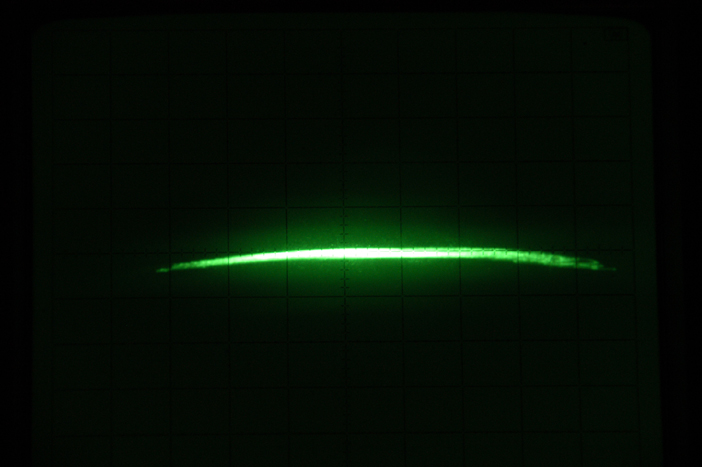
Rgs, Romy the Cat
|
|
|
|
Posted by Antonio J. on
02-28-2008
|
The second scope using your tweak is much cleaner and defined. When you believe you've got it and can share it with us, please do, I'll try it too. In my setup getting less noise will be fantastic. But I warn you, I'm technically challenged and I not even know what do you mean by FA7. I've tried a search with null success. So be as explicative as you can please.
I'm using an indoor antenna which in fact is a small car antenna, placed besides a window. The good part is that I can move the antenna and get the orientation that yields stronger signal. I'm living in an 11th floor in a building of 13, I don't have a balcony and the community wouldn't allow me to put a ddicated antenna on the roof, nor the building's outer wall. I get the active from the car antenna to feed the center of the coaxial wire and this carries the signal into the coax antenna input in the receiver. With this very challenged system I manage to get good stations at about 80 to 90% of signal, but still there's some noise. Good days it's pretty quiet, but others is terrible and I rather listen in mono.
Regards.
|
|
|
|
Posted by Romy the Cat on
02-28-2008
|
|
What kind antenna you use: 300R or 75R? What the Sansui’s antenna jack you use? I presume that your “small car antenna” uses 75R coax cable and your use the75Ohm Sansui’s input?
|
|